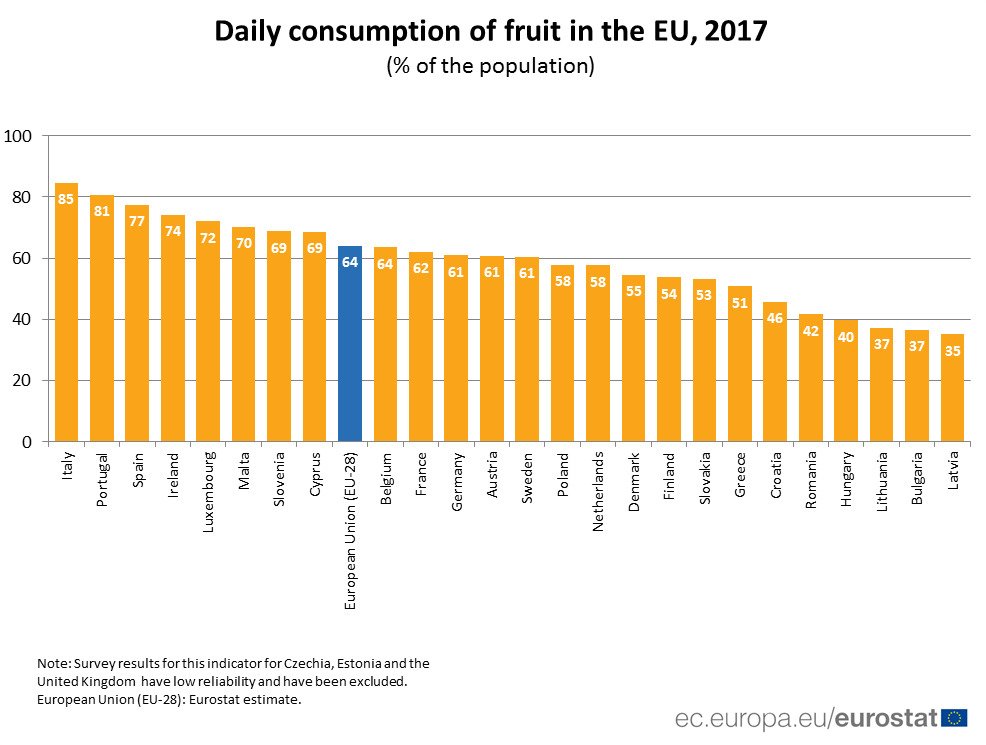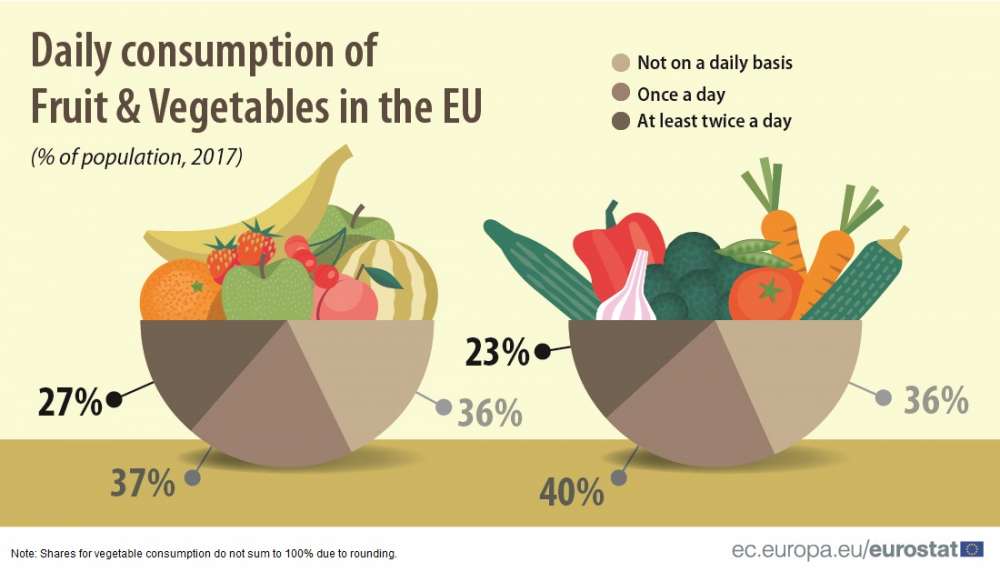Despite the abundance of fresh fruit and vegetables in Cyprus, daily consumption is at similar levels as the EU average, according to figures released by Eurostat on Monday.
The survey showed that EU-wide in 2017, around 1 in 4 people (27%) ate fruit at least twice a day. A further 37 % of the EU population ate fruit once a day and the remaining 36% ate fruit either less frequently or not at all during a typical week.
In Cyprus, daily consumption of fruit was 69% — which was the sixth highest along with Slovakia. The EU average was 64%. Italy was top with 85%, followed by Portugal with 81%. Latvia was ranked bottom of the table with 35%, and with Bulgaria and Lithuania (both 37%) was one of three EU countries s where less than 40% of the population ate fruit on a daily basis.

A breakdown of Eurostat’s figures shows that 38.3% of people in Cyprus have fresh or chilled fruit once a day, 30.3% at least twice a day, 4.1% less than once a week, 11% once to three times a week, 15.4% four to six times a week and 0.8% never ate fruit.
Compared with fruit consumption, a slightly smaller proportion (23%) of the EU population ate vegetables at least twice a day, and a slightly higher proportion (40%) ate vegetables once a day.

In Cyprus, daily consumption was 64% — same as the EU average and the 11th highest. The breakdown shows that 46% had vegetables (other than potatoes and tubers) once a day, 17.9% at least twice a day, 3.3% less than once a week, 12% one to three times a week, 20.1% four to six times a week and 0.7 never.
When it comes to vegetable consumption in the Member States, Ireland and Belgium had the highest proportion of the population who ate vegetables at least once a day (both 84%).
While in most Member States between 50% and 80% of the population reported that they ate vegetables daily, there were five Member States where the proportion was below 50%: Hungary (30%), Romania (41%), Latvia (44%), Lithuania and Bulgaria (both 45%).
The source data are here.






